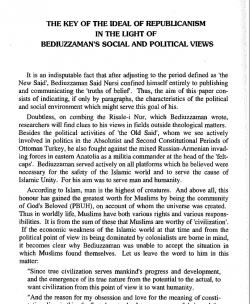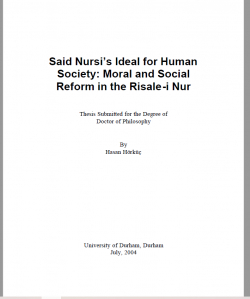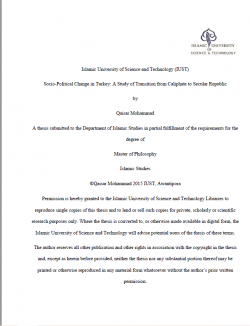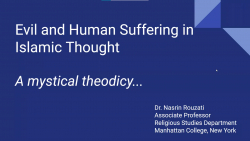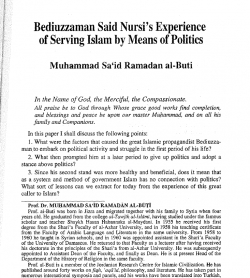RELIGIOUS LEGITIMACY OR POLITICAL EXPEDIENCY?: THE JURISPRUDENTIAL FOUNDATIONS OF HUMAN RIGHTS PROTECTION IN THE LATE OTTOMAN CONSTITUTIONAL DOCUMENTS
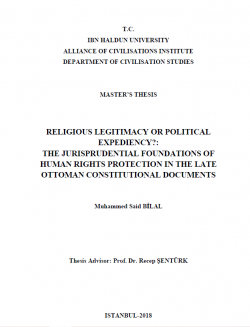
Book Stores
Type
E-Book
Authors
BİLAL ( Muhammed Said )
Category
Master Thesis - Yüksek Lisans Tezi
[ Browse Items ]
Publication Year
2018
Publisher
Ibn Haldun University, Turkey
Pages
227
Subject
Religion, Law, History
Tags
Abstract
I will attempt to examine whether the constitutional reforms in the late Ottoman Empire were indicative of political expediencies or religious legitimacies in this thesis. The subject matter of this thesis is the human rights protection of the late Ottoman constitutional documents. The Ottoman Empire underwent remarkable constitutional movements in the nineteenth-century. Throughout the century, numerous constitutional documents appeared between 1808 and 1875, which is characterized as "the Tanzimat period" in literature. These documents were the very first written official charts that guaranteed fundamental rights of all Ottoman subjects for both Muslims and non-Muslims. The question whether the rights, which these documents guaranteed, were shaped in conformity with classical Islamic jurisprudence or appeared under the influence of western institutions has been controversial in academic circles for a number of decades. Situating the discussion in the context of human rights in Islam and the history of law, in an interdisciplinary approach, I will attempt to reveal the Islamic jurisprudential foundations of the constitutional documents in terms of fundamental rights. The concept of `iṣmah has been utilized to protect and guarantee fundamental rights in Islamic jurisprudence since the very beginning of fiqh. In my thesis, I will examine the influence of the concept of `iṣmah on the human rights protection of the Constitutional documents in an attempt to illustrate Islamic jurisprudential foundations of the protection. The contention of this thesis is substantiated by the fact that the constitutional reforms were carried out (i) as a consequence of the metamorphosis of the state into a modern state, (ii) considerably in favor of the bureaucratic class, (iii) paying regard to the expectations of the Western states, and (iv) in conformity with Islamic jurisprudence in the Tanzimat era.
Number of Copies
1
| Library | Accession No | Call No | Copy No | Edition | Location | Availability |
|---|---|---|---|---|---|---|
| Main | 219 | 1 | Yes |
